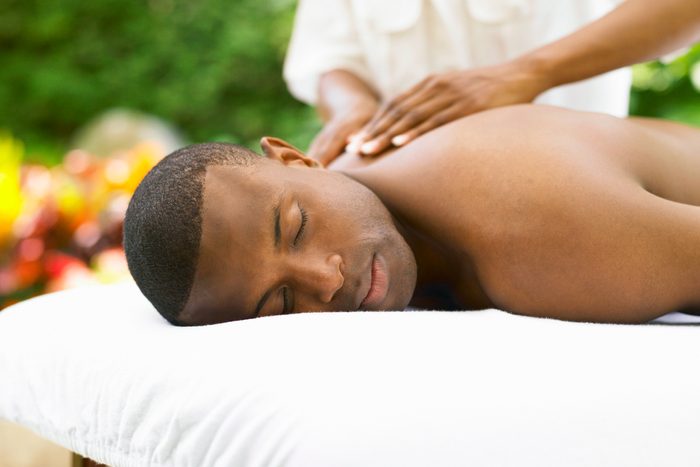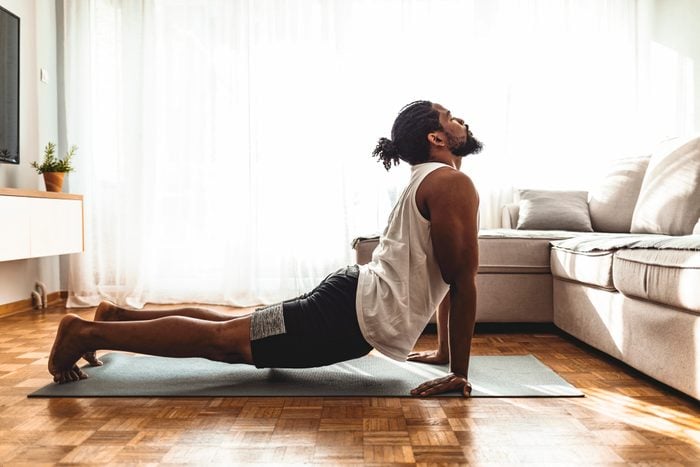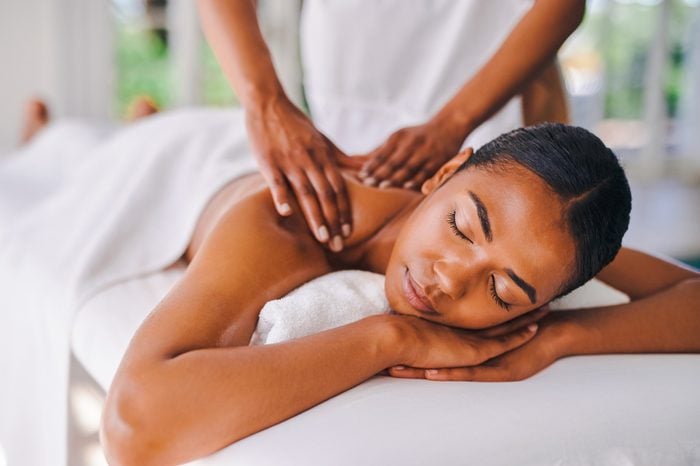
Massage therapy is a growing modality in medical settings—for example, the Mayo Clinic suggests massage is an effective tool for patients coping with the pain and stress of conditions such as cancer, heart disease, stomach problems, and fibromyalgia.
Of course, whether massage is part of your established self-care routine or reserved for the occasional act of pampering, the health benefits of massage therapy can have a profound effect on your overall health and wellness. (The same goes for our four-legged friends—here’s a video on how to give your dog a therapeutic massage!)
Here’s the thing: While massage therapy may be a relaxing experience for you, there are things your massage therapist hopes you’ll do to ensure you’re setting them up for success. So, to learn more about the ins and outs of massage therapy etiquette, we asked the pros to fill us in on the habits that could be harming you without even knowing it. These are their seven pointers to keep in your back pocket…even after you hang your clothes on the door hook.
I’m a Psychotherapist—Here Are My 5 Keys to Letting Stress Go

1. Not coming prepared
Getting a massage should be a relaxing practice of self-care. But when you’re running behind for your appointment or arriving in a heightened state, you’re not allowing your body to settle in properly ahead of the session.
According to Nicole Barlett, licensed massage therapist at Artemis Massage Studio in State College, PA, coming prepared for an appointment is as simple as arriving on time, properly hydrated, and dressed comfortably. In addition, you probably want to do any exercise before the appointment so you can indulge in the post-massage bliss and allow for proper muscle recovery before your next workout.

2. Eating a big meal right before
It’s important to remember that bodies are going to do what they do—and when it comes to hunger or digestion, your gut is going to make noises. While noises are nothing to be embarrassed about, Barlett suggests eating at least an hour before an appointment to prevent discomfort, such as indigestion, nausea, or an upset stomach during your service.
7 Mindful Eating Tips That Cure Indigestion, Bloating, and Gas

3. Not speaking up
While it might feel like your massage therapist knows exactly what you need, the truth is, even the most skillful and experienced massage therapists aren’t mind-readers. So, like any relationship, communication is key. This starts by providing your therapist with medical information such as areas to avoid, previous surgeries, medical conditions, and current prescription medications you might be taking, says Barlett.
During the service, Barlett says it’s important to let your therapist know if something feels uncomfortable and not to worry about offending your therapist, as they’ll appreciate the information. “Remember to speak up readily regarding pressure, your comfort level, and any sensations you’re noticing as the therapist works, or if you’d like to move on from a certain spot,” she says.

4. Not hydrating after your massage
One of the most common mistakes people make is not properly hydrating after a massage. Because massage releases toxins from your soft tissues, University of California San Francisco Health cites the importance of drinking water to help flush out your system.
In speaking with Barlett, the findings were supported. “During a massage, lactic acid buildup is released, lymph is moved around, and circulation is increased,” she says. “Water is vital for these processes and also helps prevent soreness after massage.” If you slack on drinking water after a session, chances are good you’ll feel sore and groggy the following day.
In addition, she suggests steering clear of strenuous activity post-session, such as exercise, jogging and yardwork, as well as excessive caffeine, liquor, and other dehydrating beverages.
Here’s How Much Water You Really Need in a Day, with Nutritional Scientists’ Wisdom

5. Fighting the urge to sleep
If you’re forcing yourself to stay awake during a massage, you may be doing more harm than good. Instead, massage therapists prefer that you listen to your body and allow yourself to relax as much as possible.
“Half the battle is letting the nervous system go,” says Barlett. “Falling asleep is an indicator of your nervous system disengaging and entering a parasympathetic state. When you enter this state, your tissues are more inclined to accept bodywork and release tension.”
In other words, feel free to catch some Z’s.

7. Not staying consistent
Even if you leave your massage feeling blissed out and refreshed, the health benefits really unlock from consistent treatment. That said, it’s helpful to think of massage as a regular tool for your overall health and wellness, rather than a quick one-time fix.
Barlett says establishing a monthly massage is great for maintenance. However, if you’re dealing with a more stubborn issue, every one to three weeks may be better suited to address the problem. If price is an issue, a massage gun or other home remedies could come in handy.

